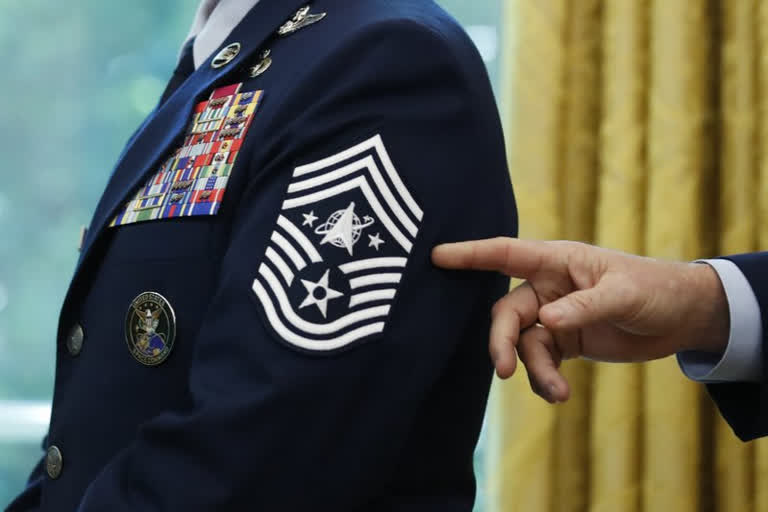Washington: To the last moments of his presidency, Donald Trump trumpeted Space Force as a creation for the ages. And while President Joe Biden has quickly undone other Trump initiatives, the space-faring service seems likely to survive, even if the new administration pushes it lower on the list of defence priorities.
The reason Space Force is unlikely to go away is largely this: Elimination would require an act of Congress, where a bipartisan consensus holds that America’s increasing reliance on space is a worrying vulnerability that is best addressed by a branch of the military-focused exclusively on this problem.
“They’re building capabilities to use space against us. We have to be able to respond to that,” Gen. John Hyten, vice chairman of the Joint Chiefs of Staff, told the National Security Space Association, an advocacy group, last week, referring to Russia and China.
As a career space officer, Hyten says he often gets asked what will become of Space Force under Biden. And while he offered no prediction, he believes Space Force should remain.
Biden has not publicly commented on his intentions with Space Force. His defence secretary, Lloyd Austin, has been noncommittal while stressing the strategic importance of space. The White House did not respond to a request for comment on Biden’s view.
Read:|NASA administrator departs, Biden may pick a woman chief
Although some see it as a Trump vanity project, Space Force is not the farcical force of the public imagination. In the military, it’s seen soberly as an affirmation of the need to more effectively organize for the defence of U.S. interests in space — especially satellites used for civilian and military navigation, intelligence and communication.
While far smaller than any other branch of the military, Space Force is acquiring the standard trappings of service, including an official flag, logo, seal and doctrine. It has launched commercials to attract recruits. After lengthy debate, it was decided last month that Space Force members would be called guardians, although they don’t yet have an official dress uniform. The force is planning to expand its ranks from 2,400 active-duty members to 6,400 by the end of this year.
Kaitlyn Johnson, an expert on space policy at the Center for Strategic and International Studies, says bipartisan congressional support for Space Force makes it likely that Biden will not push for its undoing.
“I think this is a good thing, as the Space Force has had barely a year to set itself up and get to work,” she said. Adds her think-tank colleague, Todd Harrison, “The odds of it being repealed are close to zero.”
Space Force was launched in December 2019 as the first new military service since the establishment of the Air Force as an independent entity in 1947. Its leader, Gen. John W. “Jay” Raymond, has a seat at the table with the other Joint Chiefs, although Space Force operates as part of the Department of the Air Force, much like the Marine Corps is a separate service but is overseen by the Department of the Navy.
